Normal Physical Science Worksheets for Ages 3-7 - Page 3
56 filtered results
-
From - To
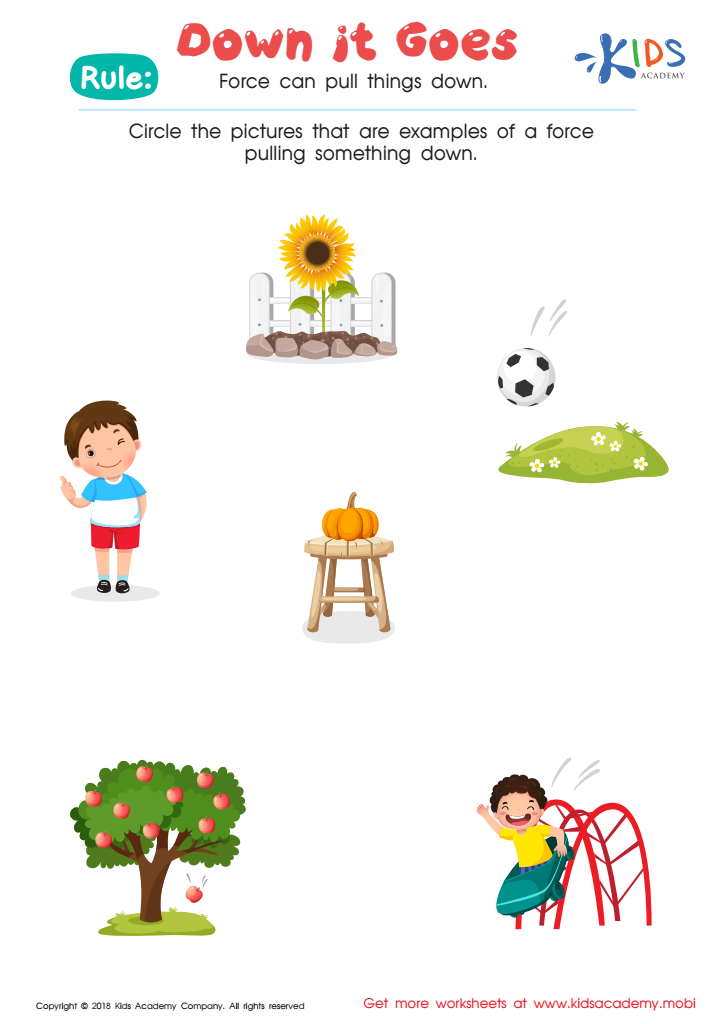

Down it Goes Worksheet
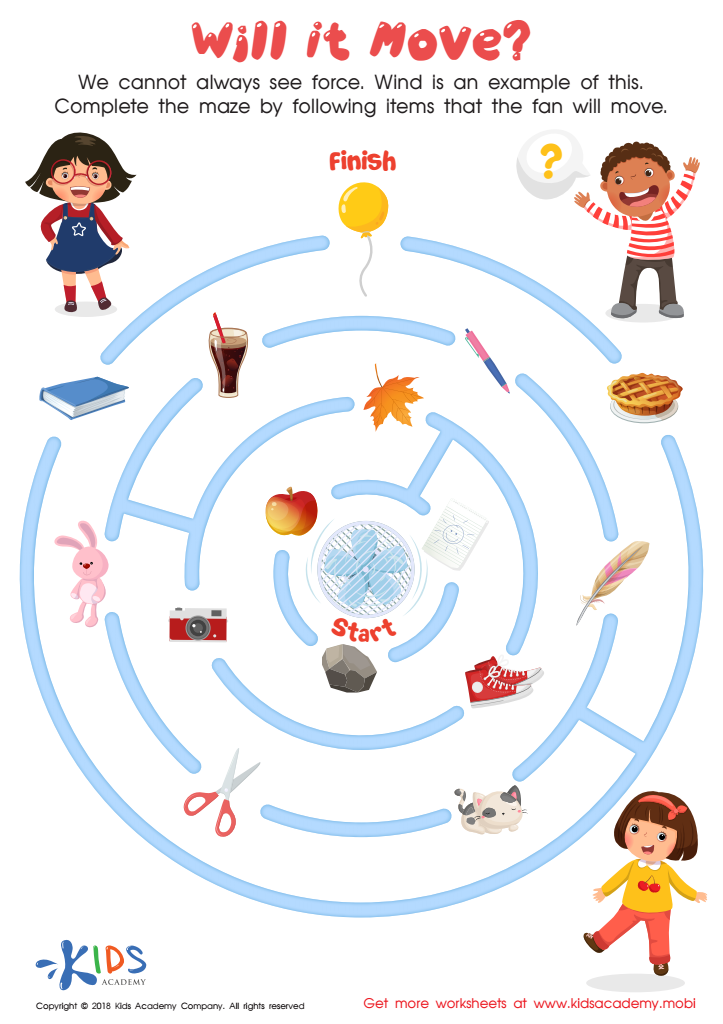

Will it Move? Worksheet
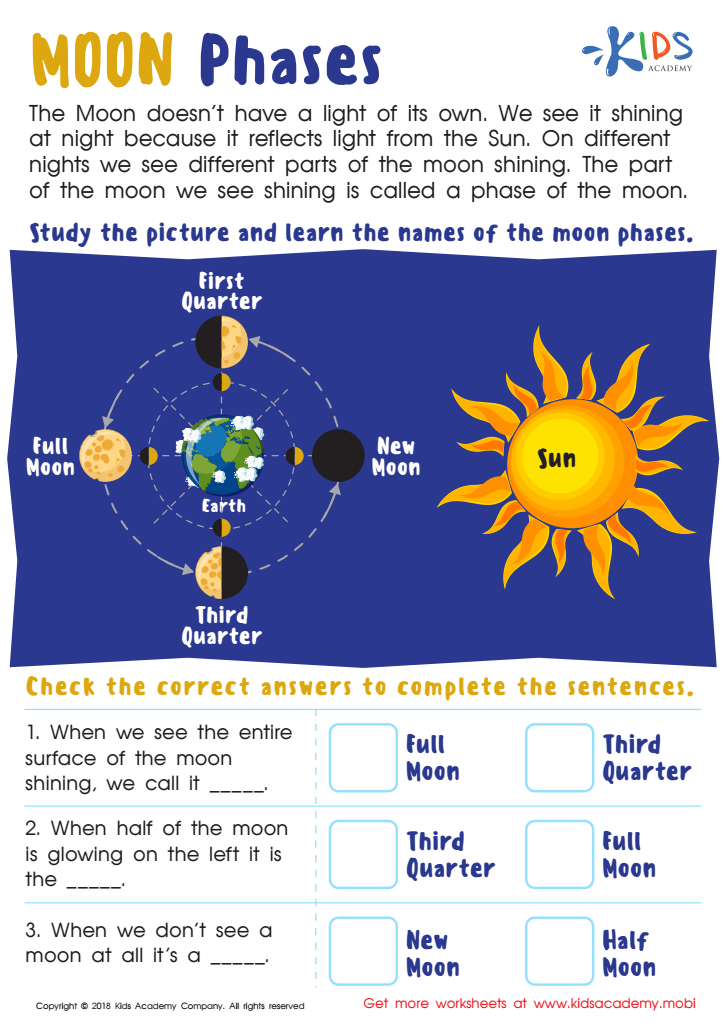

Moon Phases Worksheet
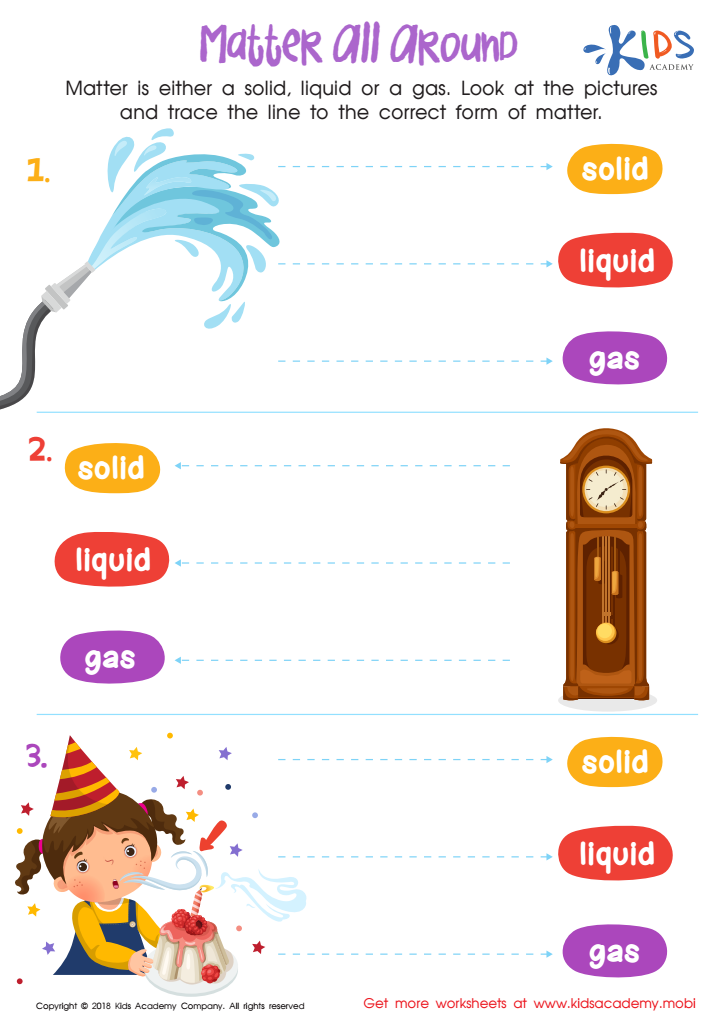

Matter all Around Worksheet
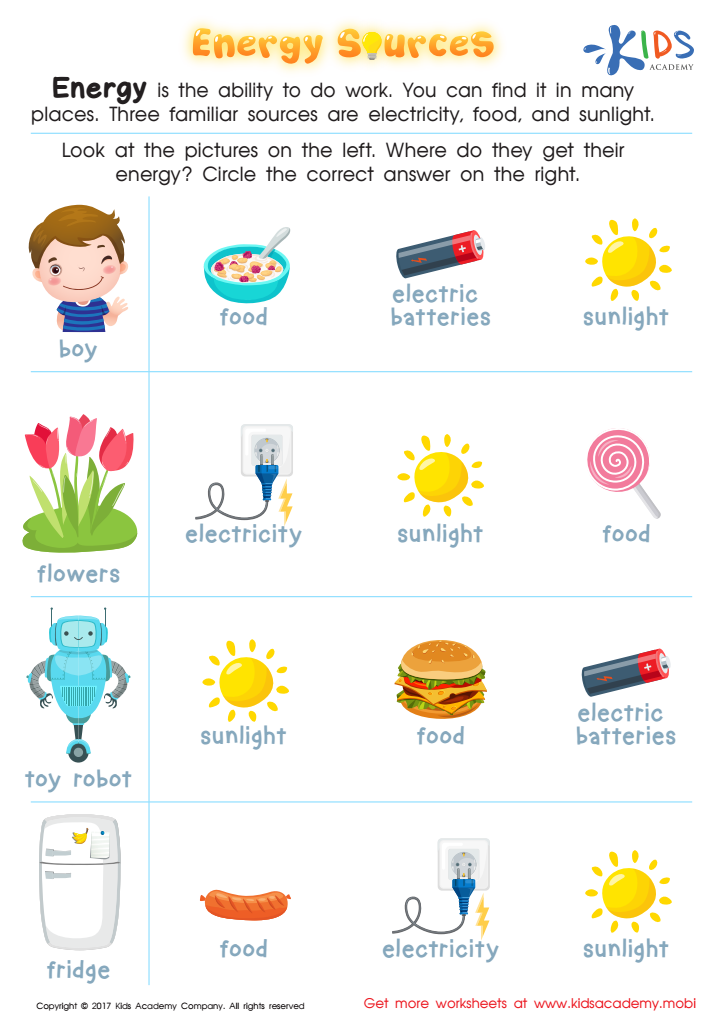

Energy Sources Printable
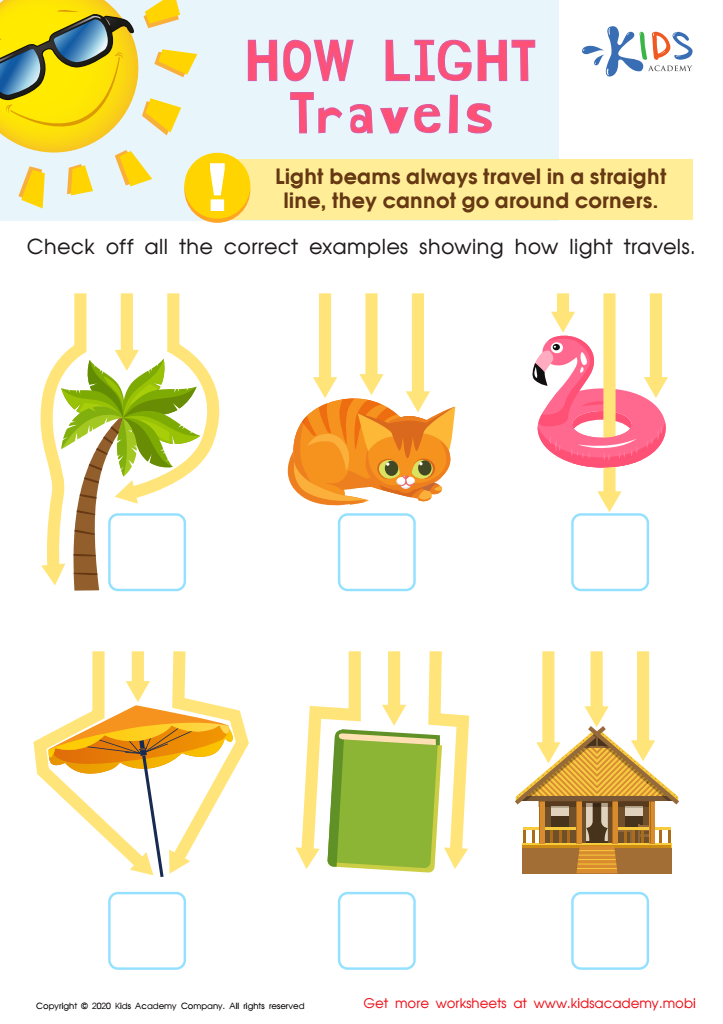

How Light Travels Worksheet
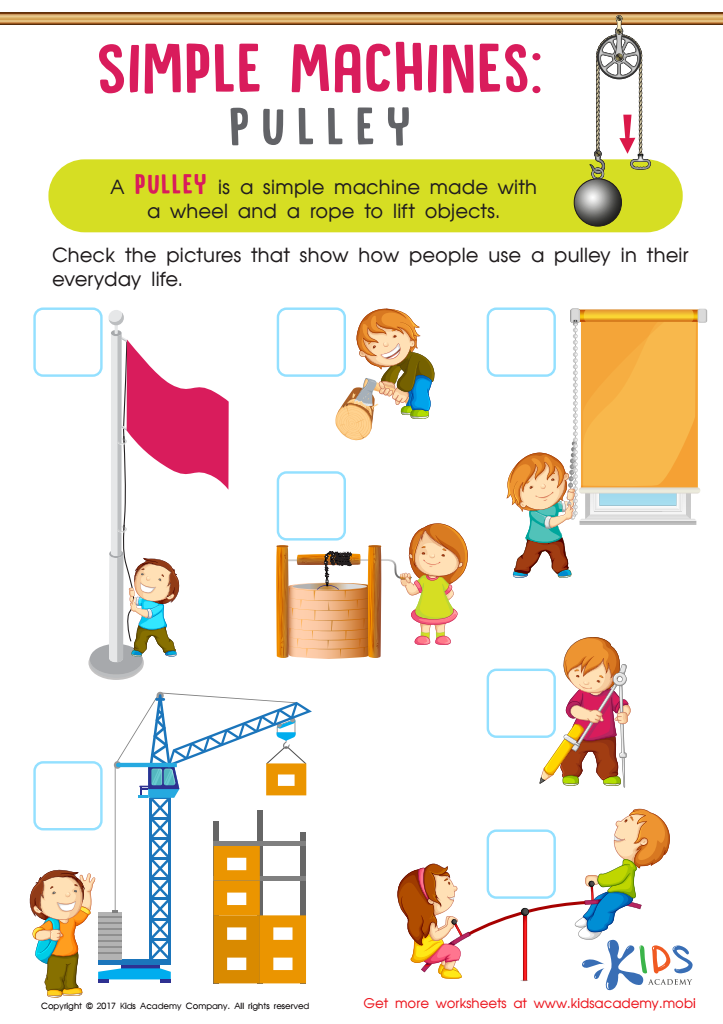

Simple Machines Pulley Worksheet
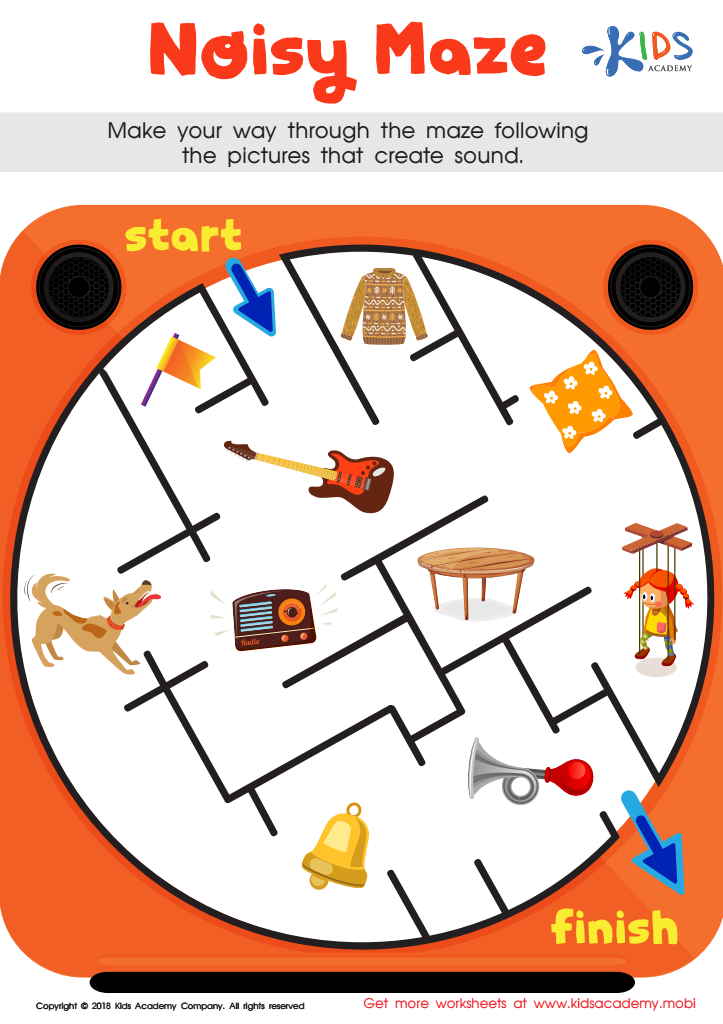

Noisy Maze Worksheet
Parents and teachers should prioritize Normal Physical Science for children ages 3-7 because these formative years lay the groundwork for foundational learning and curiosity about the world. Engaging children in simple physical science activities fosters critical thinking, problem-solving skills, and a lifelong love of learning. At this age, children's brains are highly receptive and capable of absorbing information rapidly, making it an optimal time to introduce basic scientific concepts.
Through playful experimentation and observation, young children can grasp fundamental principles of physics, such as gravity, motion, and cause-and-effect. This hands-on approach not only makes learning enjoyable but also helps develop fine motor skills and cognitive abilities such as memory and attention span.
Additionally, early exposure to science instills a sense of wonder and encourages children to ask questions, promoting inquisitive and analytical thinking. When parents and teachers actively participate in these activities, they also build strong, positive relationships with the children, providing emotional support and boosting their self-confidence.
Moreover, understanding physical science helps children make sense of everyday experiences, enhancing their overall comprehension and communication skills. In essence, integrating normal physical science into early childhood education is crucial for intellectual and emotional development, creating a solid foundation for future academic success and a well-rounded, informed life.
 Assign to My Students
Assign to My Students



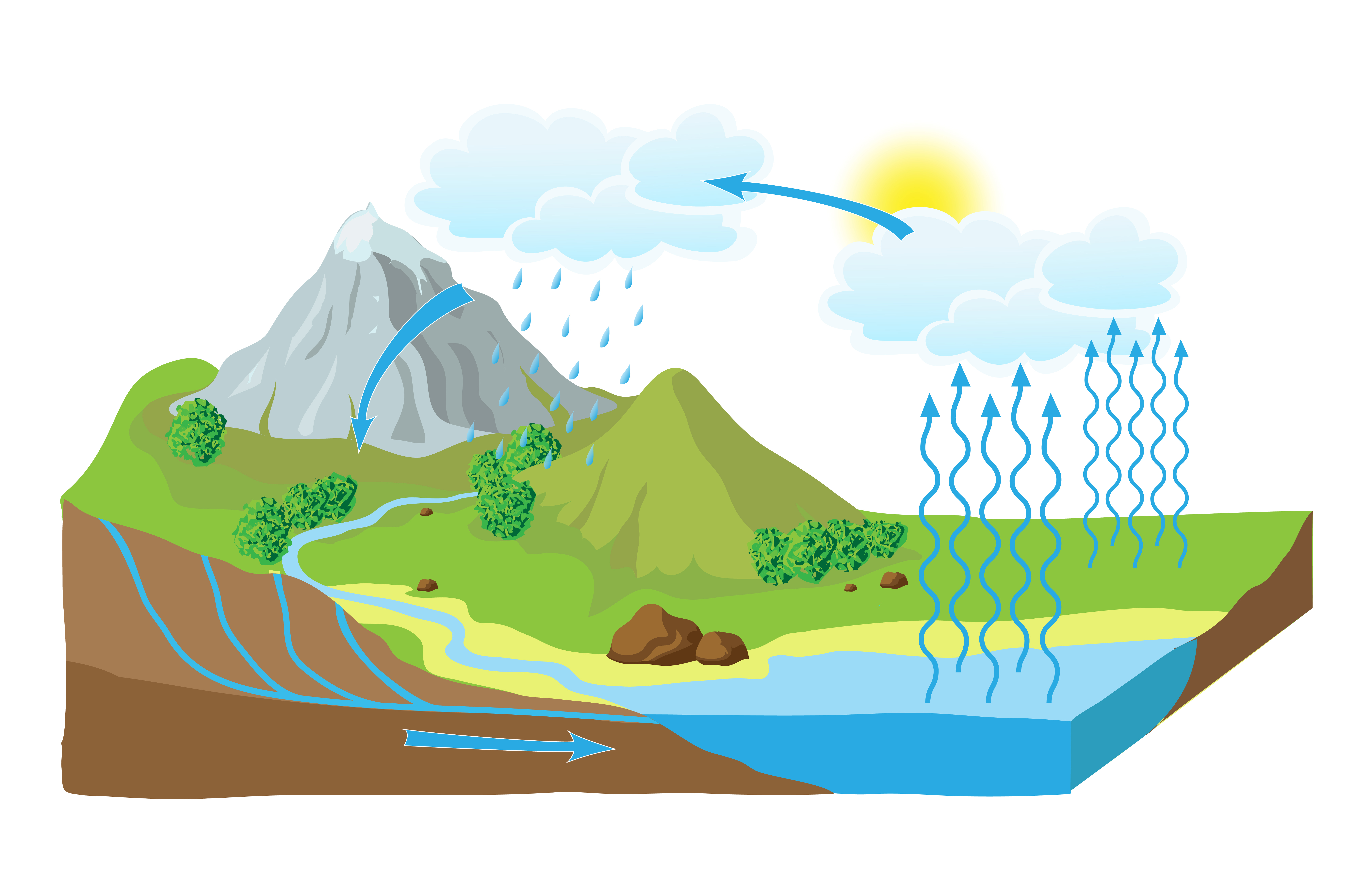
.jpg)









